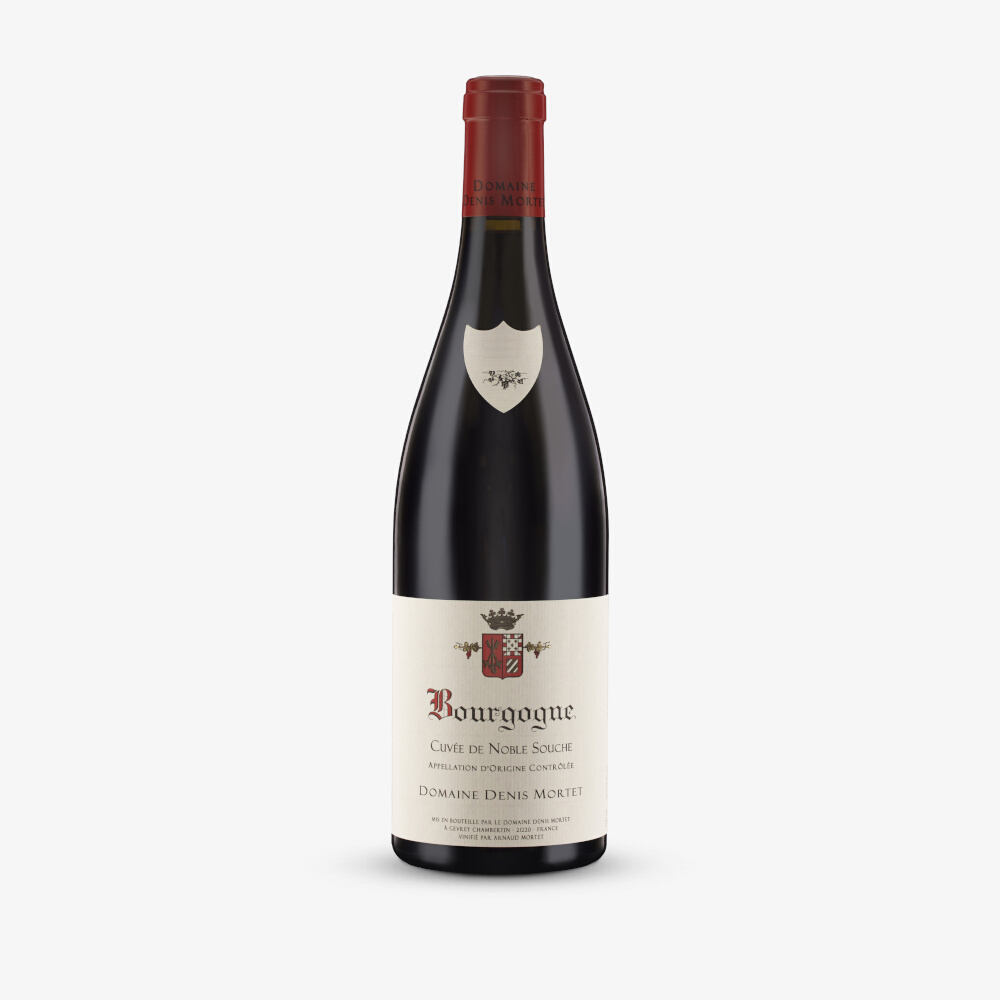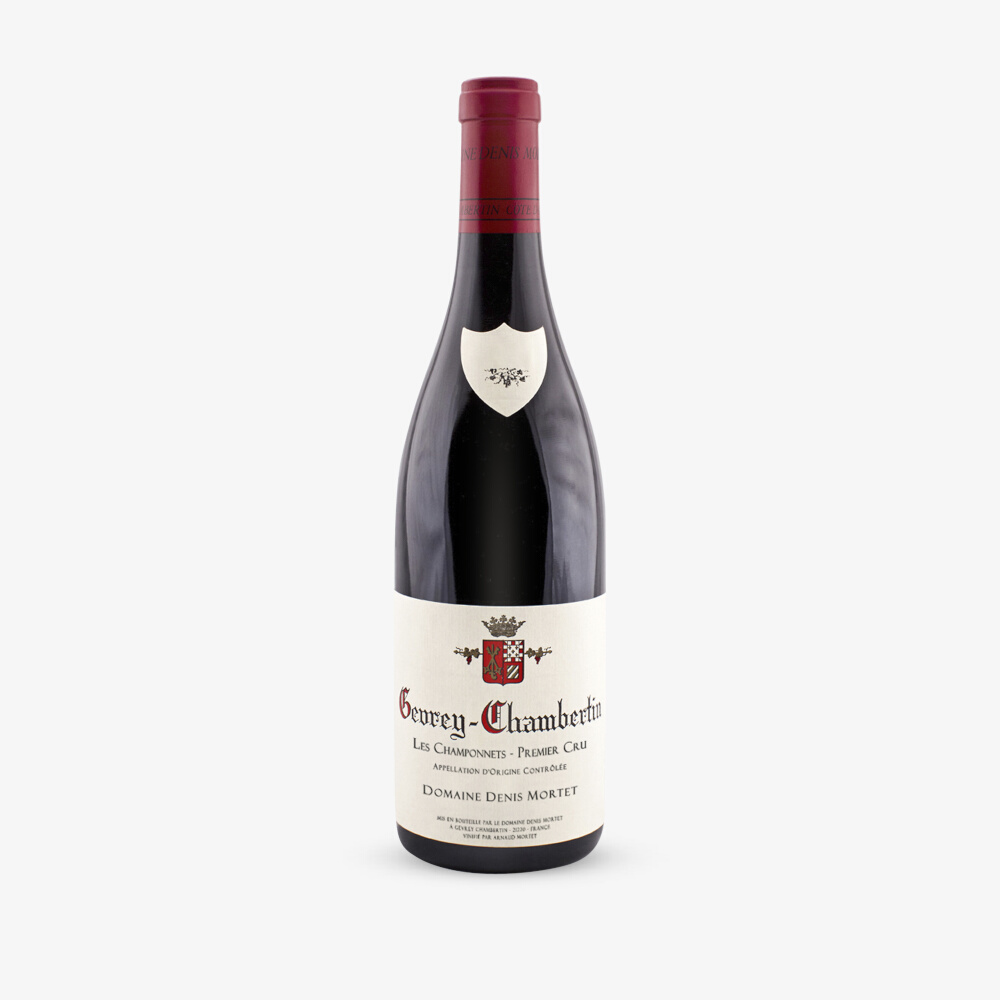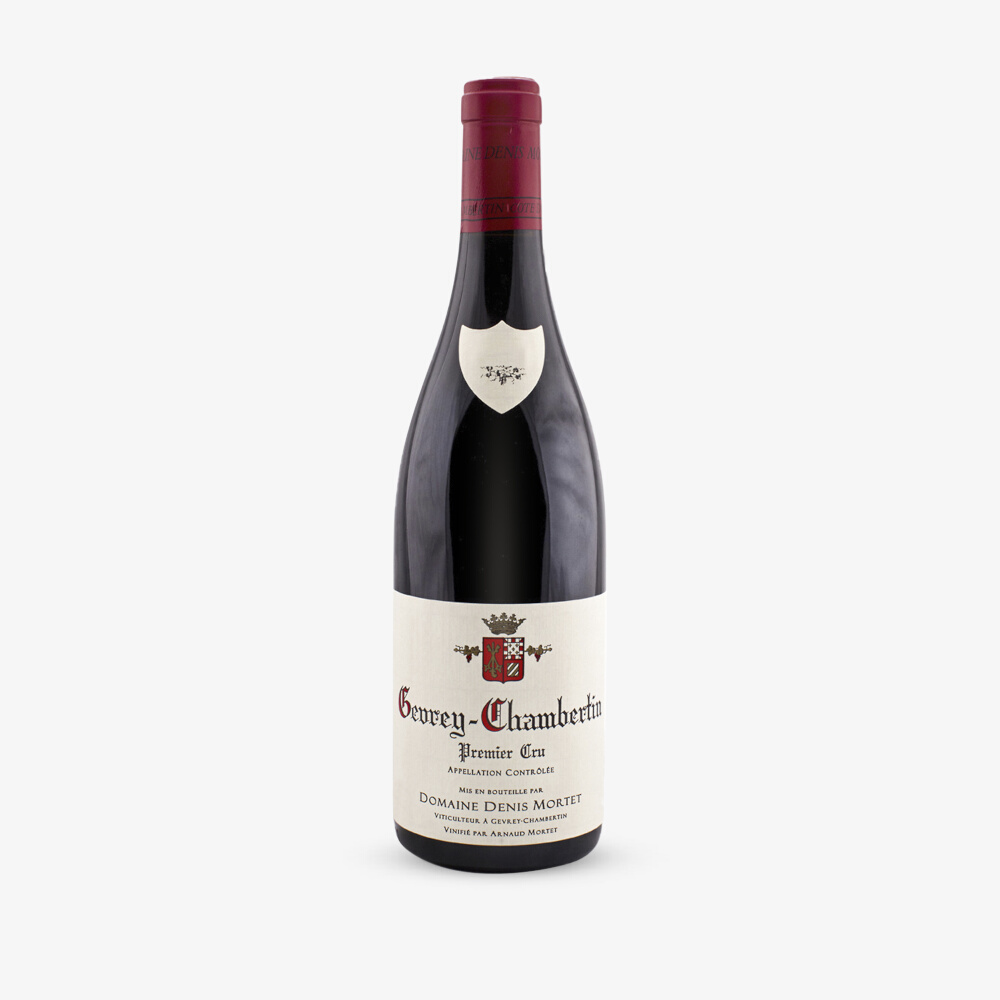
Denis Mortet
Denis Mortet's death in the early part of 2006 was a tragedy that shook the wine world. He was able to make the 2005s and fortunately his talented son Arnaud was waiting in the wings to take over. Denis was already leaning towards making a more gentle style of Burgundy in 2006 and Arnaud seems to have even more whole-heartedly adopted this philosophy, moving closer to the wines of great uncle, Charles Rousseau. During fermantation, extraction is very light and much less new oak (no more than 40%) is employed during élévage. Whole bunches are used during fermentations for all but the basic cuvées, to varying degrees depending on the vineyard and vintage. Arnaud has refined his style and is now at the top of his game, making effortless, crystalline red Burgundies that rate among the finest in the Côte.
2017 Vintage
Arnaud Mortet considers 2017 to be “a fantastic Pinot vintage, if you kept yields low.” Harvest started on the 6th September; Arnaud waited for ripeness, which he felt was lacking at the beginning of the month but did not wait too long, either, wanting to keep acidity in the wines. Arnaud’s vines are like a garden, so well kept are they, his calm demeanour hides a fervour, rigour and passion for vine-growing and winemaking. He continues to ferment using 15 to 20% whole bunches but painstakingly cuts out most of the stalks (70-80% of them) before fermentation - an almost unprecedented piece of extra work load that highlights his relentless pursuit of quality. This serves to avoid the more astringent tannins that can come from the stalks. Arnaud has without doubt come of age over the last few vintages, this must surely be recognised as one of the top Domaines in Burgundy.
2018 Vintage
An immaculate collection; Arnaud has made one of the very best ranges in the vintage. The rigour and precision with which he works and the decade of experience he has accumulated has thrust this domaine into the top echelon of Burgundy estates. Arnaud decided to start picking on the 4th September using, for the Premiers Crus and Grands Crus, his painstakingly arduous (and quite frankly, crazy) approach which involves cutting the berries off the bunches by hand, leaving but a small stalk sticking out of each grape. The wines benefit from the softness and aromas that come from this intra-cellular whole berry ferment without having the rusticity of the stalk tannins. A little less of this practice was employed than last year, Arnaud wanting to keep as much freshness in the wines as possible, but it still represents 30% of his production. A huge amount of work but emblematic of Arnaud’s no compromises approach to quality. For such a “ripe” vintage these are extraordinarily deft and precise. They have sumptuous textures but do not lack for detail or energy. Sublime.
2019 Vintage
Arnaud Mortet is pretty self-critical so when he proclaimed “2019 is my greatest vintage yet” we sat up and took note! He offered the following explanation “2019 has great ripeness, but is a typically Burgundian vintage that expresses the terroir. Richness underlined by great freshness.The wines have ripe tannins but very fresh crunchy fruit.” His particular concern was not harvesting too late – “I look for pH in the grapes, and this did not move too much during ripening, it was potential alcohols that moved quickly. I don’t like burgundy to be too alcoholic, so we had to pay attention not to pick too late.We had to be very reactive. Nowadays potential alcohol can increase by two degrees in two weeks of ripening, it used to be three to four weeks.” Arnaud began picking on Friday 13th September. Grapes were ripe but, importantly, fresh, and range from a modest 13–13.7 degrees of alcohol. Because of good ripeness levels, and also the healthy acidities, Arnaud was able to use plenty of whole bunch fermentation – 50% for the Bourgognes and Villages, 35% for the Gevrey and between 30-60% for the Premiers and Grand Crus. For the Premiers and Grand Crus Arnaud uses his own particular, and painstaking, form of whole berry ferment – whole bunch “decoupé.” Effectively cutting the grapes from the bunches, leaving the tiny stalk sticking out of the berry.These are intense but unmistakably Burgundian – complex, concentrated and ethereal in equal measure.They are calm and elegant but also assured, solid and vibrant. Each terroir sings loudly, the wines are already charming and sensual but, you feel, most age worthy for their balance and intensity. Alas, be warned this is a tiny crop.Not only did poor flowering and drought play its part, but an increasing problem here and more widely in Burgundy is root stock.The stock planted after the frosts of 1985 appear to suffer more in drought and wide-spread replacement of vines has been necessary these last few vintages.This likely means crops will continue to be limited for the next couple of years at least.
2020 Vintage
For Arnaud Mortet, it was essential that throughout the 2020 growing season they worked efficiently at every step of the way to arrive with well balanced, not excessively alcoholic Pinot Noirs. In this, he has achieved that and more, turning out a range of fabulous, top- drawer Burgundies that max out at a modest 13.4% ABV. Moreover, following on from the success of his 2019s he has now fully adopted the painstaking berry-by berry approach for all the grapes in the upper level wines, keeping just the pedicule in place. An adaptive oak and whole cluster regime is employed across the rest of the stable; all efforts to build complexity and heighten a sense of transparency within each individual plot. Harvest commenced here on 25th August and was wrapped up in a week, as Arnaud sensed that “maturity was coming rapidly”.The wines are not racked until bottling and spend on average 18 months in barrel.There can be no doubt now that Domaine Denis Mortet is operating at the very top level in Burgundy.
2021 Vintage
Arnaud Mortet’s cold cellars will house his 2021s through a second winter before being bottled in April, as is the norm here. Malos are invariably on the late side, as they were in 2021, and Arnaud finds that a full 18 months in barrique gives the wines a volume that they might otherwise miss. Not that everything remains constant. Much experimenting with a type of whole bunch fermentation that Arnaud refers to as ‘Pedicelle’, since 2015, has convinced him of its benefits. It’s a time-consuming method that involves removing the central stem from each bunch to leave tiny clusters of five or six grapes attached to the smaller side stems.“It affords the grapes space in the vats, and enhances the aromatics in my wines, and their texture. It gives wines of charm and freshness”, qualities that are dialled up to eleven in this vintage. New oak usage continues on its downward trend too, and as a result the wines show really impressive purity. Average yields were down at around 18hl/ha in 2021. Nothing is racked until bottling so as to preserve freshness.“I love this vintage.” the newly crowned Roi Chambertin summed up.“It was complicated, and irregular, but by working hard I think we’ve produced some superb wines. The hot vintages are harder to adapt to. 2021 wasn’t overly ripe, it was cold, it’s great like that. I love 2021, it’s really refreshing”. Amen to that Arnaud.








